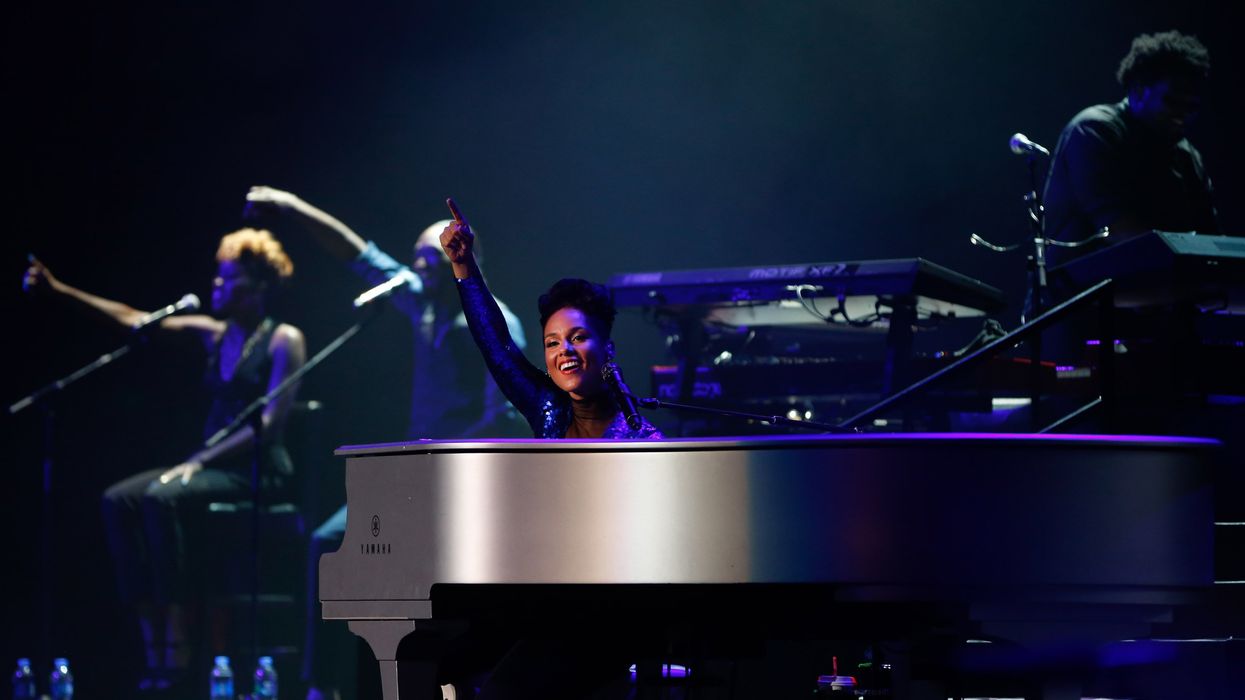Daley-Harris is the author of “ Reclaiming Our Democracy: Every Citizen’s Guide to Transformational Advocacy ” and the founder of RESULTS and Civic Courage. This is part of a series focused on better understanding transformational advocacy: citizens awakening to their power.
In her song “ We Are Here,” Alicia Keys sings, “Let’s talk about Gaza ... let’s talk about Israel. Right now it is real.” No, the song wasn’t released last week; it was released 10 years ago.
But there’s another part of the song that carries its own importance. In the chorus, Keys sings, “We are here, We are here for all of us, We are here for all of us, That’s why we are here.” Keys provides a valuable lesson about how knowing our why and sharing it gives meaning to our lives and to our activism.
When I train staff to deliver transformational advocacy, I have them think about why they do what they do and write their story of self. Developed by Harvard professor Marshall Ganz, the story of self asks: What happened in your life and what decisions did you make that got you to this commitment? Think about your own story of self as I share this shortened version of mine.
I have bachelor’s and master’s degrees in music, played percussion instruments in the Miami Philharmonic for 12 years, and taught high school music. Forty-four years ago I founded the anti-poverty lobby RESULTS. I know, the connection between music and lobbying isn’t obvious, but several experiences started pointing me in a different direction. The death of a friend around high school graduation in 1964 and the assassination of Sen. Robert F. Kennedy around college graduation in 1968 got me to asking the questions of purpose. Why am I here? What am I here to do? What is my purpose?
Nine years later, I went to a presentation on ending world hunger organized by The Hunger Project. I went in thinking, “Hunger is inevitable.” I was a musician — what did I know? I assumed there were no solutions, because if there were solutions, somebody would have done something by now.
I quickly realized that there was no mystery about food growth, clean water, basic health or literacy. I wasn’t hopeless about the perceived lack of solutions; I was hopeless about human nature. People would just never get around to doing the things that could be done. But there was one human nature I had some control over — my own. So I got involved in a big way.
In 1978 and 1979, I spoke to 7,000 high school students on ending world hunger. I read quotes calling for the “political will” to end hunger, and asked the students, “What’s the name of your member of Congress?” I didn’t want to know if they’d met them or written them, just the name. Only 200 could answer correctly, fewer than 3 percent, while 6,800 couldn’t name their member of Congress — over 97 percent.
The anti-poverty lobby RESULTS was started out of this gap between the calls for the political will to end hunger on the one hand and the lack of basic information on who represented us in Washington on the other.
When Keys sings, “We are here for all of us, That’s why we are here,” she reminds us that knowing our why and sharing it is fundamental to grounding our activism in purpose and pivotal to having citizens awaken to their power.
Now, what’s your why?




















